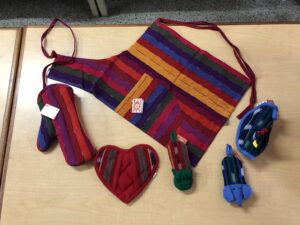Photo By PashooPakshee
ATA is proud to announce the 2021 Canvas Home™ Small Grants Program awardees. The program sponsored 10 artisan groups from Colombia, Eswatini, Guatemala, India, Kenya, Nepal, and Uganda this year.
Please meet our Awardees:
ABEXINAH ORPHANS AND VULNERABLE COMMUNITY INFORMATION CENTRE, Uganda
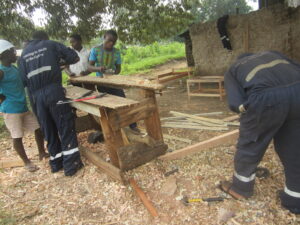
Established in 2008, the ABEXINAH ORPHANS AND VULNERABLE COMMUNITY INFORMATION CENTRE is a community-based organization in Uganda with a vision to reduce suffering and create an informed community, technically empowered with specialized services and skills. The organization lives up to this vision by training youth in carpentry, joinery, computer, and entrepreneurship. The organization plans to use the grant to support its training programs and buy more art materials for its entrepreneurship training.
CHELMA ADVISORY INSTITUTE, Kenya

Chelma Advisory Institute was founded in 2002 to support artisan youth in Kenya by providing them with artisan business skills to scale up their businesses. Since its inception, the Chelma Advisory Institute has helped more than 500 artisan youth. The organization plans to use the grant money to support its youth training programs and buy more raw materials for training.
Conserve India, India
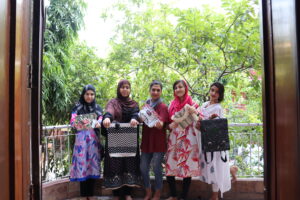
Set up on the mission to support environmental conservation in India, Conserve India uses easily replicable, low-cost technology to train waste pickers to produce a range of high-value artisan products. In doing this, Conserve India works towards sustainable development and environmental conservation while simultaneously creating socially uplifting conditions by empowering underprivileged individuals with employable opportunities. The organization will use the grant money to implement a well-thought marketing effort and onboard more artisan products online.
Freed Kamalari Development Forum (FKDF-Dang), Nepal
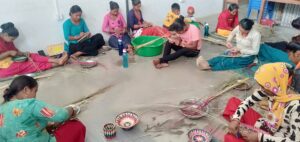
Established in 2010 as a non-profitable organization of Ex. Kamalari, FKDF-Dang works for the sustainable rehabilitation and empowerment of Ex Kamalari of western Nepal through numerous livelihood programs. FKDF-Dang engages in various artisan productions, including Trible Tharu Dress (Lehenga), a traditional dress of the Tharu community; Dolls; and Dhakiya, basketry made from a specific grass called Munja. FKDF-Dang plans to use the grant money to promote Kamalari artisans and modernize their productions.
Fundación Hilo Sagrado, Colombia
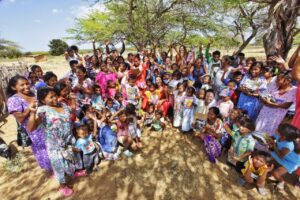
The overall goal of Fundación Hilo Sagrado is, through design and technology, to redefine the artisanal concept to create a more significant social impact in Colombia. With this vision, Fundación Hilo Sagrado helps Latina communities to become self-sustaining, provides women with the tools needed to become micro-entrepreneurs, and empowers them to take ownership of their work and escape extreme poverty. The Fundación Hilo Sagrado intends to use the grant money to buy more production materials and invest in sewing machines.
Orissa Rural & Urban Producers’ Association (ORUPA), India
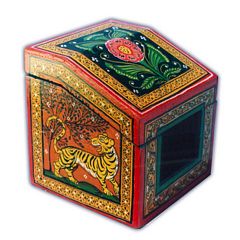
ORUPA was established in 1990 in India as a voluntary effort towards encouraging and helping the handicraft and handloom artisans of Orissa to keep their traditional art forms alive. The Orissa artisans produce various products, including natural fiber, applique, patchwork, traditional painting, coir, tribal painting, stone carving, and terracotta. ORUPA plans to use the grant money to purchase raw materials, tools, kits and support local artisans whose work has significantly been affected by the ongoing Covid-19 pandemic.
PashooPakshee, India
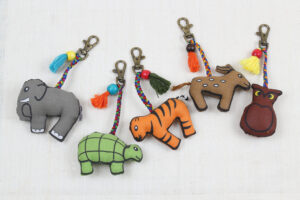
PashooPakshee (which means animals & birds in Hindi) has been making wildlife-themed souvenirs by working with tribal & marginal communities living near human-wildlife conflict areas since 2017 in India. The organization conducts multiple well-structured training sessions with the communities to help the locals make high-quality, market-worthy products. As a result, pashooPakshee artisans produce numerous artisan products, including bags, pouches, keychains, bag tags, and coasters. The organization intends to use the grant money to expand its training centers, making them autonomous and less dependent on external funds for their operations.
Quazi Design, Eswatini
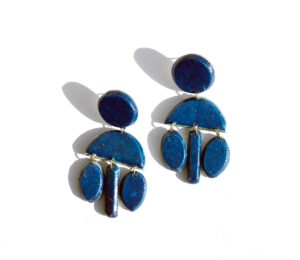
Born out of a partnership with local magazine distributors in Eswatini, Quazi Design uses waste papers to produce various artisan products, including paper jewelry, brass jewelry, paper pulp lights, bowls, and many more home products. With original techniques in production, Quazi Design is leading in sustainable design in Eswatini. The organization plans to use the grant money to buy new production equipment and invest in developing new innovative techniques that will help increase sales.
Tsandza Weaving, Eswatini
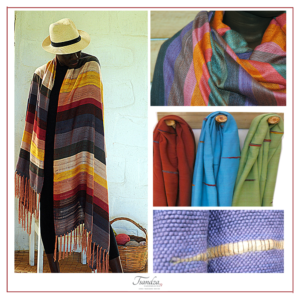
Previously known as Rosecraft Weaving, Tsandza Weaving is a social enterprise that produces high-quality products handwoven in pure natural fibers by talented artisans in rural Eswatini. Tsandza Weaving’s mission is to provide an opportunity for a constantly expanding population of rural women to develop and learn new skills that allow them to generate income to care for their families. Tsandza Weaving intends to use the grant money to buy marketing and branding items to support its business operations.
Unidas para Vivir Mejor (UPAVIM), Guatemala
Unidas para Vivir Mejor (UPAVIM), “United to Live Better,” is a community-based association of women in Guatemala. With its handcraft-making program, UPAVIM seeks to generate sustainable and independent sources of income for Guatemalan women and provide a financial base for the development of other programs. The craft program sells a wide variety of Fair-Trade handcrafted goods to national and international markets. UPAVIM intends to use the grant money to expand their production and grow their global exports.


